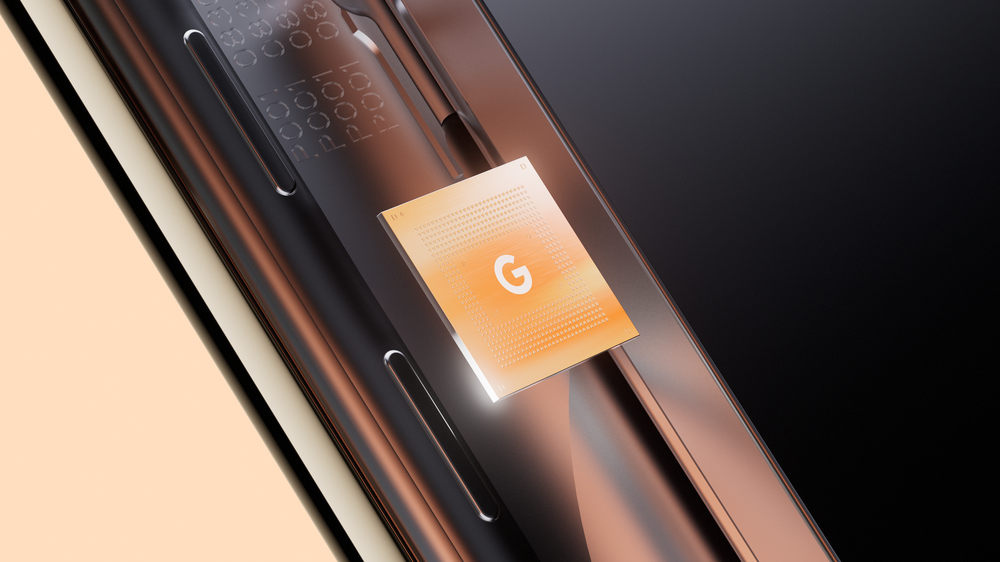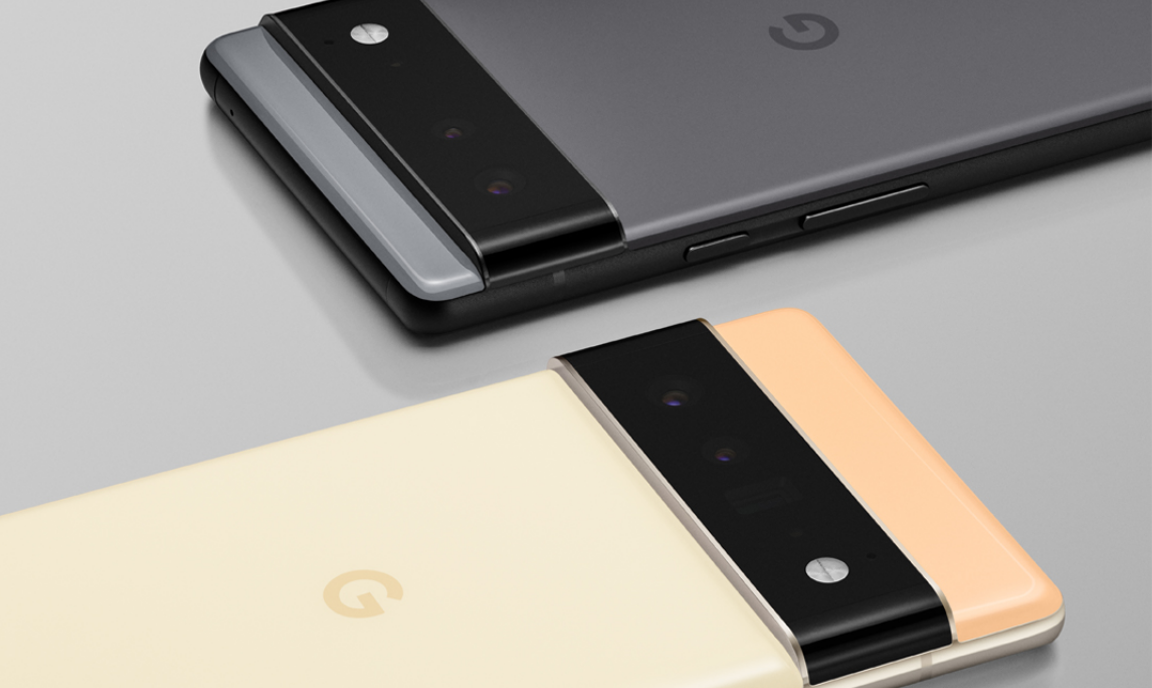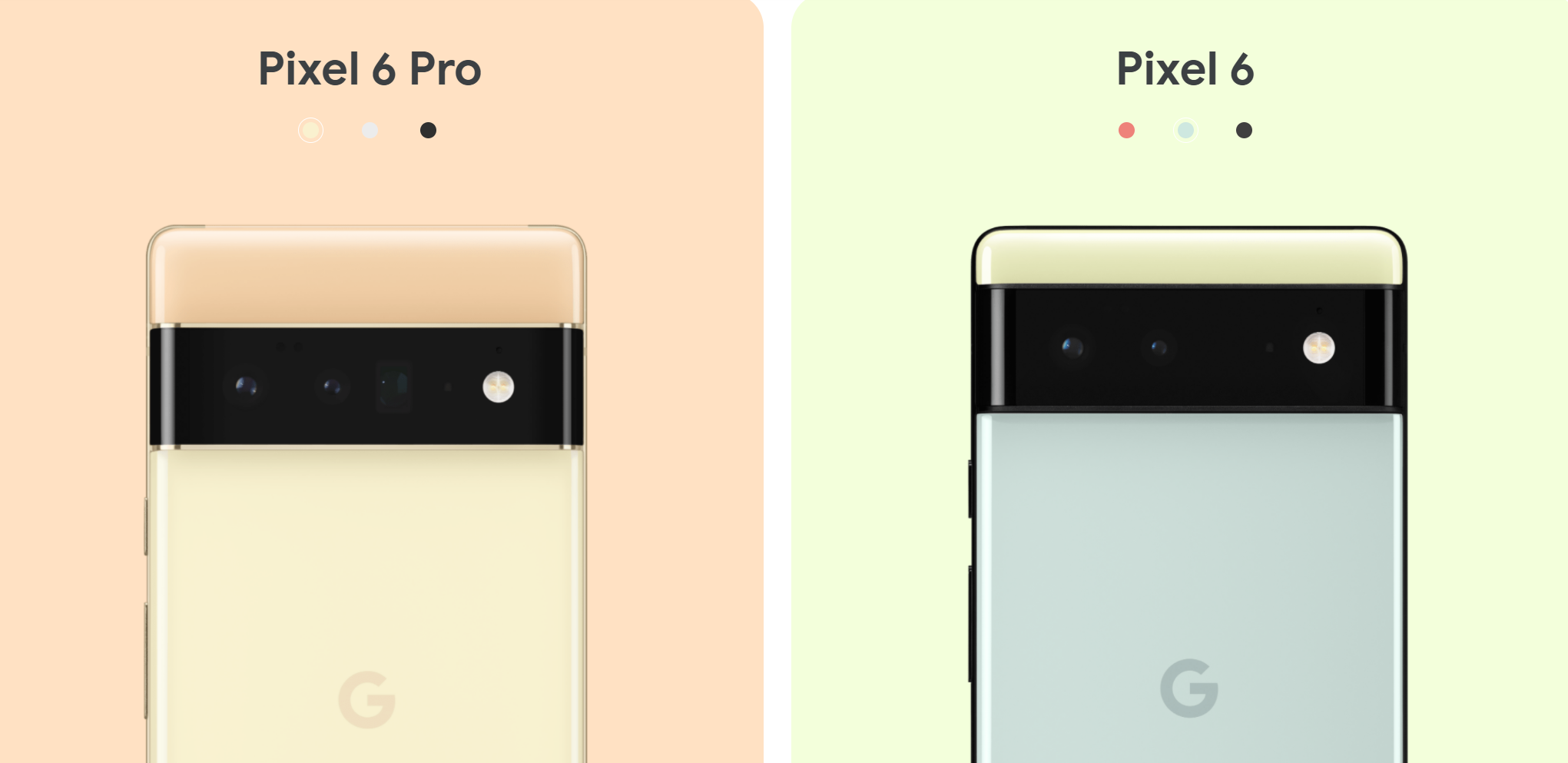Pixel 6 Pro is the flagship I've wanted from Google — Here's why I'm still worried
Google is finally making a true flagship Pixel, but I'm still worried it won't deliver.

Sign up to receive The Snapshot, a free special dispatch from Laptop Mag, in your inbox.
You are now subscribed
Your newsletter sign-up was successful
Last fall, I wrote about how the Pixel 5 made me wish Google would make a flagship phone. Lo and behold, I'm finally getting my wish. Google officially announced the Pixel 6 and Pixel 6 Pro yesterday in a surprise press release and tweet thread. While the company is holding many important specs for the official launch later this fall, we know enough to say that these are true flagship phones.
So why am I still so nervous about the Pixel 6? I've seen too much as a Pixel and Nexus owner over the years, and I foresee a number of ways Google can still ruin these phones. Let's talk about what those are and the choices the company needs to make to launch a phone capable of rivaling the iPhones and Galaxys of the industry.
- Best smartphones in 2021
- Pixel 6 will make me abandon OnePlus once and for all — Here's why
- The best phone deals in August 2021
Overpricing
My biggest concern is that Google will once again flub on pricing. This has often been a problem for the Pixel line and it was never more apparent than with last year's Pixel 5. There are some valid complaints about the Pixel 5 hardware, but the pricing is what made that device an also-ran.
At $699, the Pixel 5 was outclassed by phones like the Galaxy S20 FE and iPhone 12 mini. And to further confuse matters, Google's own Pixel 4a 5G offered about 95% of the experience for just $499. There was simply no way to spin the Pixel 5 as a solid value despite the phone being quite good.
The Pixel 6 Pro, in particular, is the first phone Google can claim as a flagship that is (nearly) on par with the best phones on the market. I'm talking specifically about hardware; Pixel phones have been in that conversation before despite having lesser specs, but that isn't the case this time around. Sundar Pichai took a page from John Hammond's Jurassic Park playbook and "spared no expense." Now let's hope this turns out better than that did.

The Pixel 4 XL was the closest Google came to building a true top-level flagship and it started at $899. While it offered a then top-of-the-line Qualcomm Snapdragon 855 processor, it came up short on RAM, storage and cameras compared to the similarly priced Samsung Galaxy S10. This, once again, showed a lack of recognition for what Google was offering versus the competition.
If Google wants to be competitive on pricing, it needs to shoot for a $799 and $999 price point for the Pixel 6 and Pixel 6 Pro, respectively, to align with the Galaxy S21/Galaxy S21 Plus and the iPhone 12/iPhone 12 Pro. My concern is that Google goes for the top-end and prices the Pixel 6 Pro at $1,099 to align with the iPhone 12 Pro Max and Galaxy S21 Ultra ($1,199, but frequently on sale) then, from a hardware standpoint, it doesn't match up to those phones.
Sign up to receive The Snapshot, a free special dispatch from Laptop Mag, in your inbox.
Google has been all over the place with Pixel pricing in recent years and it muddies the waters when trying to determine what it will do next. The lack of a cohesive lineup makes this worse and makes it unclear what happens to the Pixel 5 once the Pixel 5a launches. Will Google simply leave a $300+ gap in its lineup or will the Pixel 5 see a price drop to $599 to patch that hole?
I'm hoping that, given the financial investment the Tensor SoC presumably represents for Google, the company recognizes that it needs to play the long game and price competitively so it can finally establish itself as one of the top flagship phone makers.

Camera synergy
Google is finally upgrading the camera hardware in the Pixel! Not only is the Pixel 6 Pro getting a 4x telephoto zoom, but according to a hands-on from YouTuber Marques Brownlee, the matching wide-angle and ultra-wide cameras on the Pixel 6 and Pixel 6 Pro are "all-new sensors...big new sensors." Google said the main wide-angle sensor can take in 150% more light than the Pixel 5.
How could this possibly go wrong when you combined the new sensors with the new Tensor chip, which Google claims will dramatically improve imaging and video thanks to its advanced AI and machine learning capabilities? There's some room to worry that, after years of honing its algorithms and expertise to those 12MP cameras, Google loses a step moving to what are rumored to be 50MP main cameras.
I am much less worried about this than the pricing because these upgrades sound amazing, but we have no evidence yet that Google's computational photography prowess will translate over seamlessly to new hardware.

Quality Control issues, continued...
Another problem with the Pixel line has been a lack of quality control. There were a number of complaints about gaps between the screen and the frame of the Pixel 5, and the Pixel 4 XL suffered from a similar issue with its glass back. The original Pixel had a microphone manufacturing issue that led to a class-action suit against Google (one the company lost), and there are more examples of poor manufacturing if you go back to the Nexus line.
This one is impossible to predict, but with Google now making true flagship phones that will presumably command full flagship pricing, the company needs to tighten up its QC processes. There's no reason the company can't improve its reliability especially given the lower production volume versus the likes of Samsung's Galaxy or Apple's iPhone.
Google needs to prove itself as a flagship manufacturer because widespread QC issues on a device marketed as the culmination of years of design and development would be disastrous.
Material You will be best on #Pixel6.The colors, the camera, the form, and what’s on the screen all work together in a single, fluid experience. (9/13) pic.twitter.com/K6BRF9ZKEYAugust 2, 2021
Bottom line
As I said at the outset, a flagship Pixel is what I've been wishing for from Google for years now. The majority of what we are hearing about the Pixel 6 and Pixel 6 Pro indicates that Google is making the right moves with these phones.
However, the Pixel and Nexus lines are littered with devices that had one fatal flaw or production-related oddities. The Pixel 6 and Pixel 6 Pro could still fall victim to one of these, which is why I continue to worry even as I eagerly count down the days to getting these devices in my hands.
Sean Riley has been covering tech professionally for over a decade now. Most of that time was as a freelancer covering varied topics including phones, wearables, tablets, smart home devices, laptops, AR, VR, mobile payments, fintech, and more. Sean is the resident mobile expert at Laptop Mag, specializing in phones and wearables, you'll find plenty of news, reviews, how-to, and opinion pieces on these subjects from him here. But Laptop Mag has also proven a perfect fit for that broad range of interests with reviews and news on the latest laptops, VR games, and computer accessories along with coverage on everything from NFTs to cybersecurity and more.

